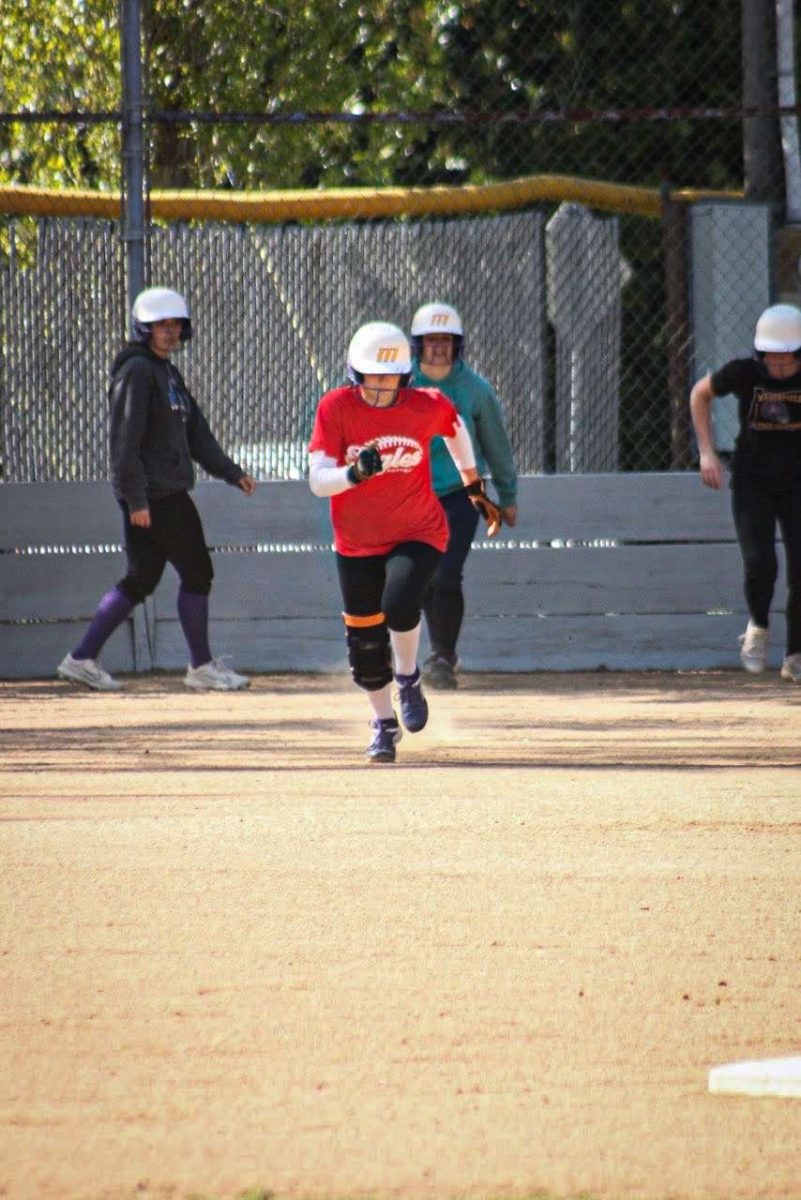Many students are not getting a healthy amount of sleep because of parental expectations, extracurricular activities and homework. Lack of sleep can lead to negative effects, including social and health problems.
By Elyse Trendell | Assistant a&e Editor
Nine hours of sleep is the final frontier in the voyage of a high school student. They spend years on a mission to explore strange new ways of completing homework, seeking out sleep and boldly going where no teenager has gone before.
According to the National Sleep Foundation, (NSF), the number of sleep deprived teens in America who claim they do not get the recommended amount of sleep has reached a startling all time high of 92 percent. While the other eight percent are getting healthy amounts of sleep, the majority of teens experience negative effects associated with poor sleep habits. Homework, extracurricular activities and parental expectations can take away time meant for sleep in many households.
The switch to a four day school week does not help these matters. Many athletes and other students enjoy having Fridays off for homework and sleeping in, but the schedule change makes it hard for families of elementary school children and older students who cannot drive yet, because of problems finding daycare and transportation. Most would agree the time we are in school has shortened. To compensate for lost time, the school day starts earlier; over recent years, start times have been moved up by at least 15 minutes to fit in the schedules. Despite the fact starting school earlier helps supplement the amount of time students are absorbing more information, they are suffering a lack of sleep.
With these setbacks, teachers have to figure out a way to squeeze their lesson plans into the year. As teachers must fit lengthened instructions into smaller periods, the students are loaded with homework. Students may spend the late hours of the night studying rather than counting sheep. Although some homework is no longer worth points in the proficiency based grading system, students still need to prepare for tests.
Parents can contribute to this sleep deprivation as well. Students aspiring to have a higher GPA may feel they are doing so because of expectations from a guardian. The pressure to be successful is a huge cause for lack of sleep. On top of being pressured into getting great grades, many students push for getting involved in extracurricular activities as well. This may look good on a college application, but parents should not advocate activity over sleep. Programs such as drama, forensics, choir, band and various clubs can attribute to the majority of the causes for lack of sleep, along with homework and parental demands. Students involved with school activities often have to stay after school, sometimes as late as 10 p.m. on some nights. While these activities offer a lot of good opportunities, they also contribute to sleep deprivation. Students may either go home and not even attempt to complete homework or stay up hyped on Redbull and coffee. Athletics can be just as bad. Teams that go away on trips may not return home until midnight. These same students have to turn around the next morning and go to first period practically ‘zombified.’
Students are simply not getting enough sleep which directly impacts their learning. Coos Bay School District, the Superintendent and school board should consider returning to the five day school week. This would provide some extra time that could possibly allow for a later start time. Studies conducted by the NSF also showed a block schedule provided students with more time for homework, because of the lower amount of classes they have to prepare for the next day. Although adolescents are not often diagnosed with sleep deprivation, the NSF studies report many teens naturally go to sleep late and require 8 ½ to 9 hours of sleep. Later start times and a block schedule could lead to happier students and higher SAT scores. A teen’s mission can be very strenuous, and extra sleep should not be a main goal on just the weekends. Instead sleep should be an everyday objective so they may live long and prosperous lives.





















